International Economics is more important than ever
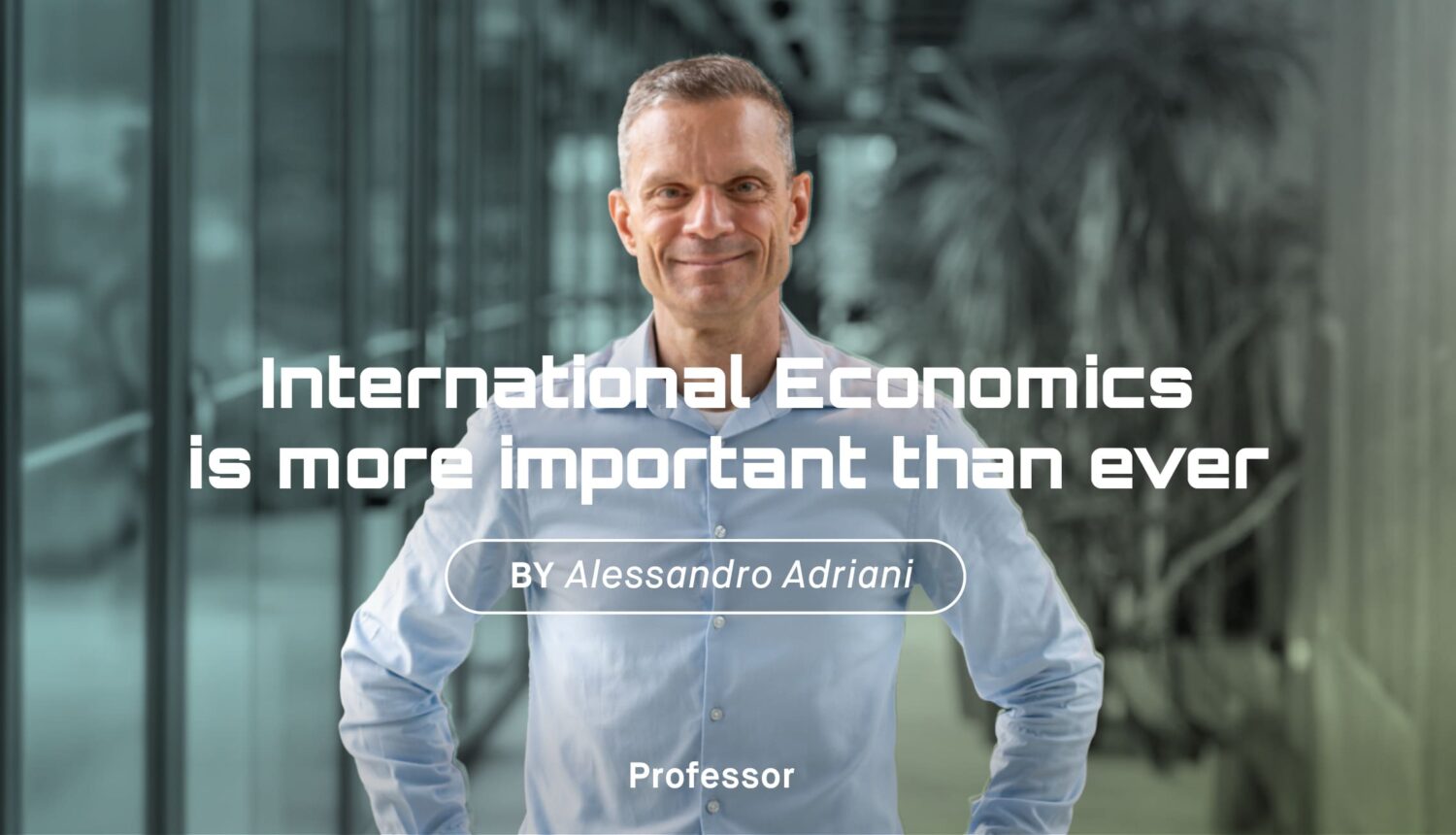
To succeed in business and to manage our personal lives – from buying a car, to applying for a mortgage, to renovating our homes, to booking a foreign holiday – understanding International Economics and Global interconnectedness has become paramount as the world is increasingly connected.
Our economies are linked like never before. Events and decisions made in countries thousands of miles away can have daily implications on our personal and professional lives:
- a cargo-ship stuck in the Suez Canal cripples the global supply chain and the car you ordered months ago still hasn’t been delivered because of the global microchip shortage;
- a dispute between Saudi and Russia on oil supply, severely damaged the market, and the oil price turned into negative territory! The buyers were paid (negative price!) to take away oil with their tankers;
- negative interest rates were offered a few years ago in several Countries. This impacts your family mortgage, your company treasury management, foreign exchange rate, your purchasing power and your investment plans.
The integration of economies in different geographies via supply chains, import and export, capital moves, and migration is impacting individuals, households, communities, companies, and countries like never before. International Economics gives you the compass to navigate through these complexities.
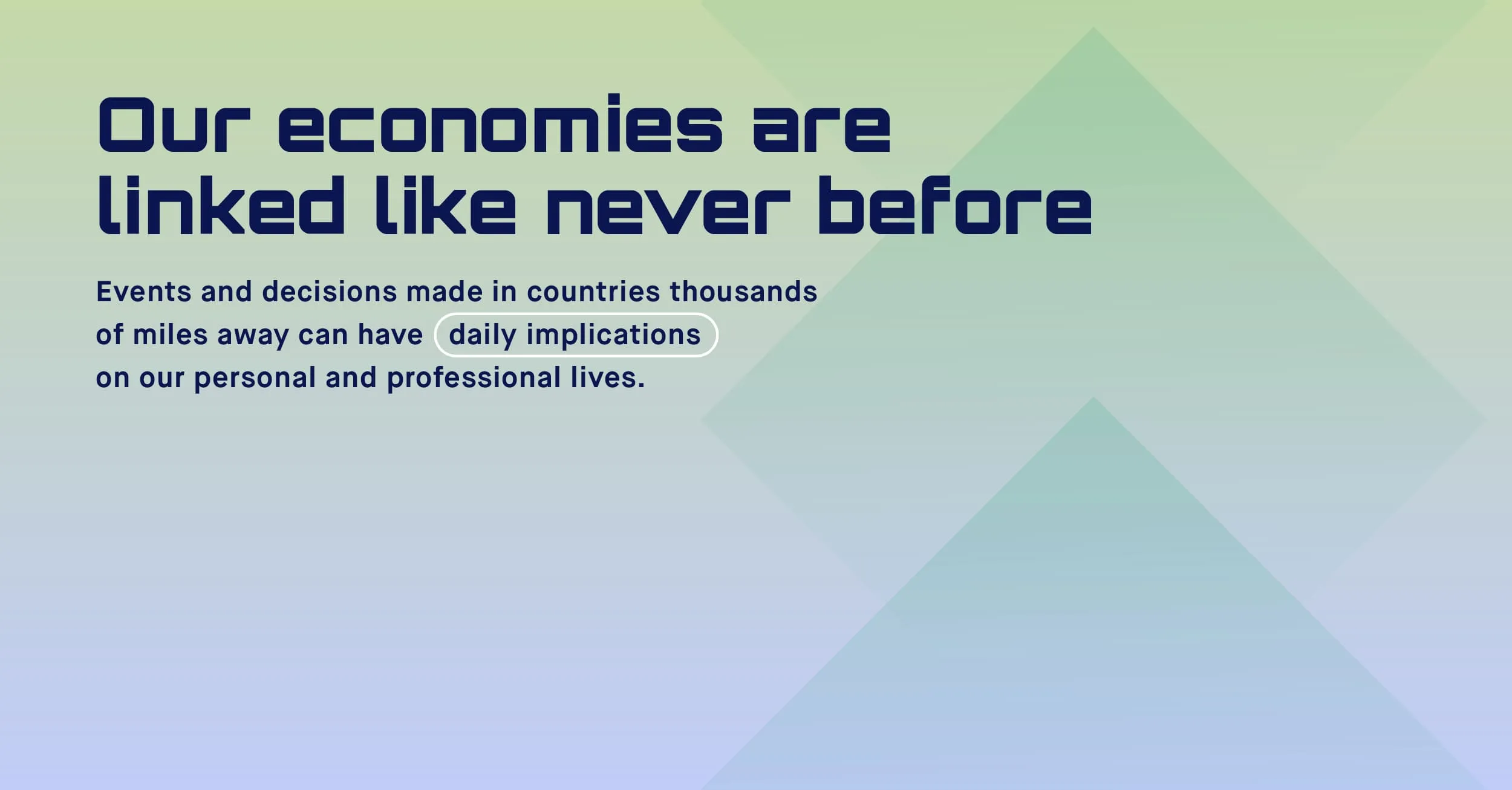
Academic theory and real-life use-cases: from the classroom to the boardroom
Managing businesses is quite challenging without knowing the basic concepts of economic science, yet alarmingly, many leaders are quite oblivious to these economic concepts: they were given additional responsibility and climbed the corporate ladder without having a basic foundation in economics. Sooner or later reality catches up with them and the results do not lie. This is a typical principal-agent problem. How many can resonate with this?
H-FARM College offers a rigorous set of courses from International Economics to International Business Management and more for students aiming to gather a deeper academic understanding than the ‘pub-talk’ so prominent in these current times. This English language idiom should nowadays be changed from ‘pub-talk’ to ‘social-media-talk’!
With the aim of deeply comprehend today’s intertwined world economy and how global events, such as financial crises, pandemics, Brexit, or geopolitical tensions on national economies impacts us, the International Business syllabus provides a deep and sophisticated understanding of:
- Historical facts, when were the basic principles of ‘International Economics’ codified? Does Westfalia Sovereignty (1648) ring a bell? Was the world trade higher in 1914 or in 1970? Datapoints suggest the former (source WTO)! Did the UK win WW2 or the Bretton Woods System suggests otherwise? How US-Vietnam war is interlinked with the end of the Gold Standard in 1971 and with simultaneous ping-pong diplomacy?
- Foundational knowledge, ranging from the basic Principles of Economics – Adam Smith and David Ricardo, and going deeper than the pub-talk ‘invisible hand’ – to Capital Flows, Exchange Rates, Macroeconomics Dynamics, Trade Theory and Tools.
- Analysis of international trade, spanning through Policies and Governance – such as ASEAN, EU, USMCA, WTO and more – Foreign Direct Investments, Financial Institutions and Financial Systems.
- Understanding of the major current and recent past issues, from the causes to the aftermath of the Financial Crisis – like the Global Financial Crisis 2008, the Greek Sovereign Debt, and Brexit, their impact in the real economy, as well as Trade disputes – e.g. China vs. US Trade-War – and Global Supply Chains disruptions.
At this point, you may be thinking:
“Understood the above. Yet, answer my question: how specifically does International Economics translate from the classroom to the boardroom?”
Without a deep understanding of International Economics, you are going to be navigating in the treacherous waters of business management without a compass, at the mercy of the waves of complex geopolitical tensions, exchange rate fluctuations, different jurisdictions, international trade, tax and tariffs.
Even worse, you may be at the mercy of those individuals and organizations you are negotiating with, who have deeply understood International Economics and they know how to maximise the current context they are in. Potentially at your expenses.
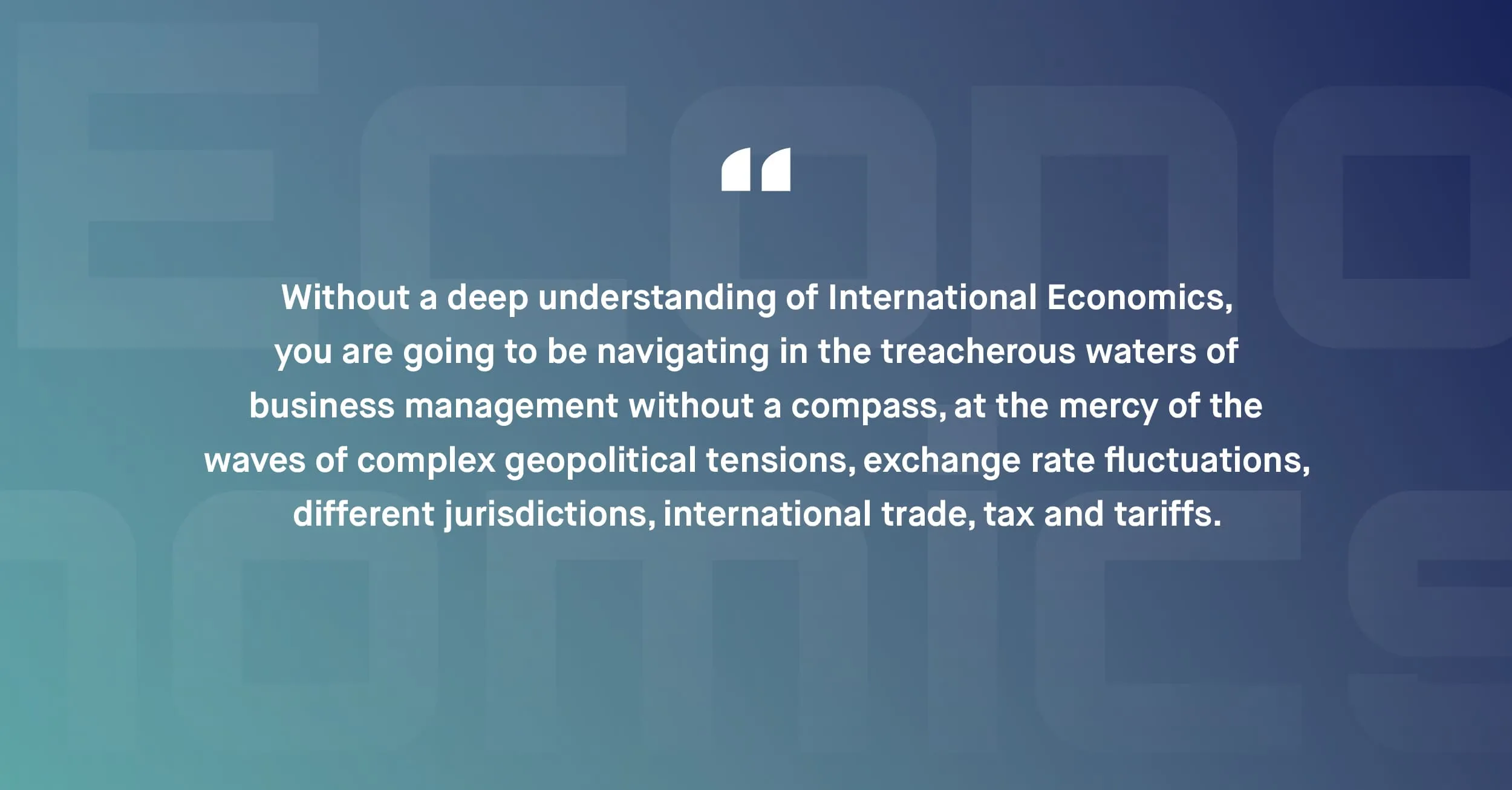
In the not-too-distant future, you are going to be at the helm of a Business Unit of a Multinational Enterprise, and with a profound understanding of concepts like the general equilibrium mathematical model of international trade developed by Heckscher-Ohlin, the role of the central banks and the foreign exchange market, you will be making informed, strategic decisions which could steer your company to success or to failure.
After attending H-FARM College, you are going to be a business leader able to navigate these choppy waters with confidence, self-assurance and have the foundations to not only survive the choppy water but to thrive. This answers your question about how International Economics translate from the classroom to the boardroom!
Beyond the boardroom, International Economics is about having the pulse of the global economy, which shapes future leaders and enable them and their companies to thrive in the Volatile, Uncertain, Complex and Ambiguous (VUCA) world you are going to be operating in.
At H-FARM College, International Economics is a central piece of the jigsaw to shape future leaders who will thrive in the ever-growing intertwined world. We blend academic rigor with real-world relevant cases, enabling our students with both a theoretical knowledge toolkit and with the compass to navigate the complexities of tomorrow’s economy. Professors’ breadth of experience spans geographies and industries: both will be leveraged to add knowledge to the textbooks and delve into the heart of interconnected international businesses.
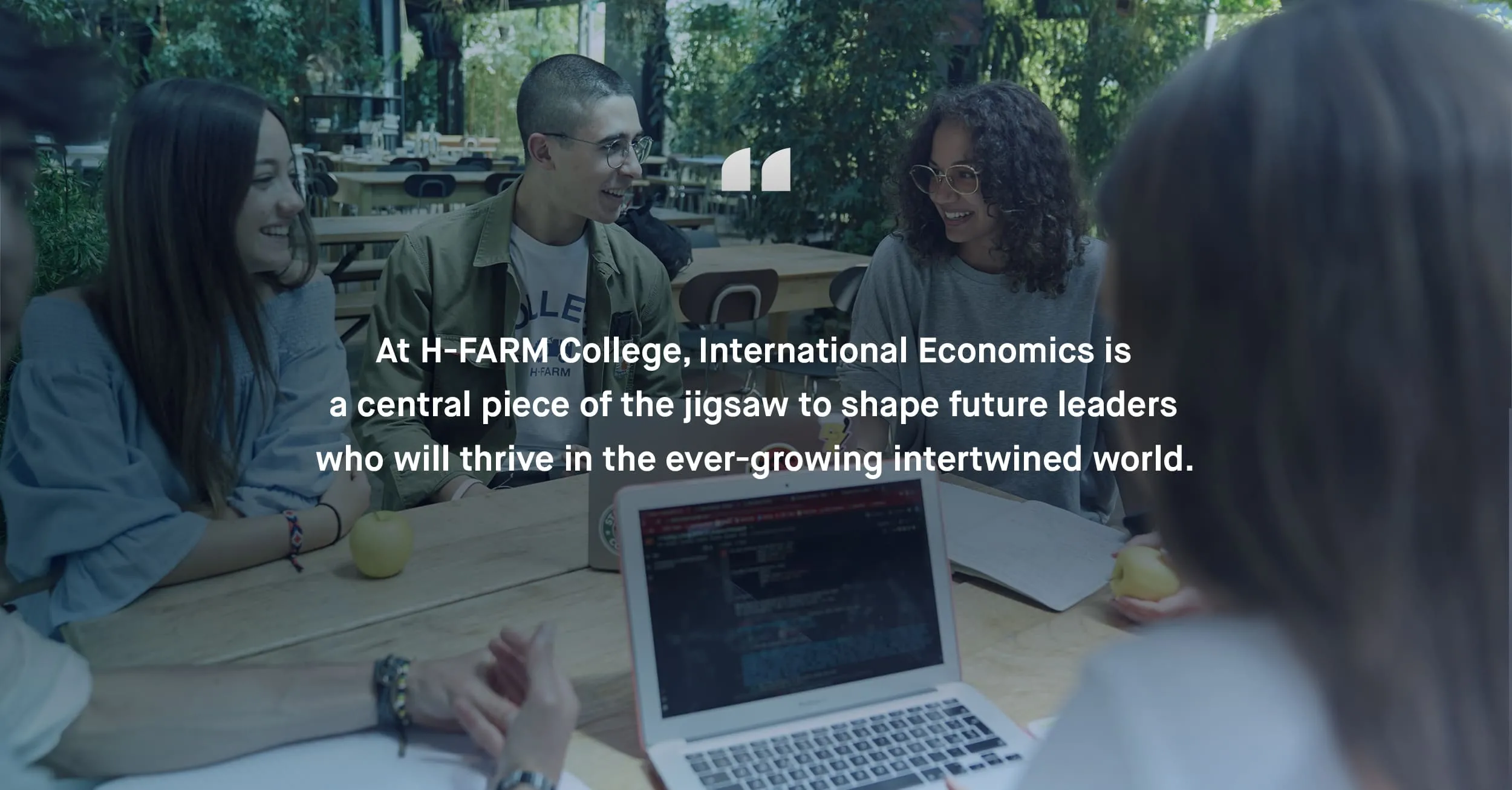
Come and discover the transformational power of International Economics at H-FARM College. Whether you are charting a career in digital, finance, consulting or entrepreneurship, our programs will equip you not only to adapt, but to master, thrive and to shape tomorrow’s ever- changing world.
Alessandro Adriani, Professor


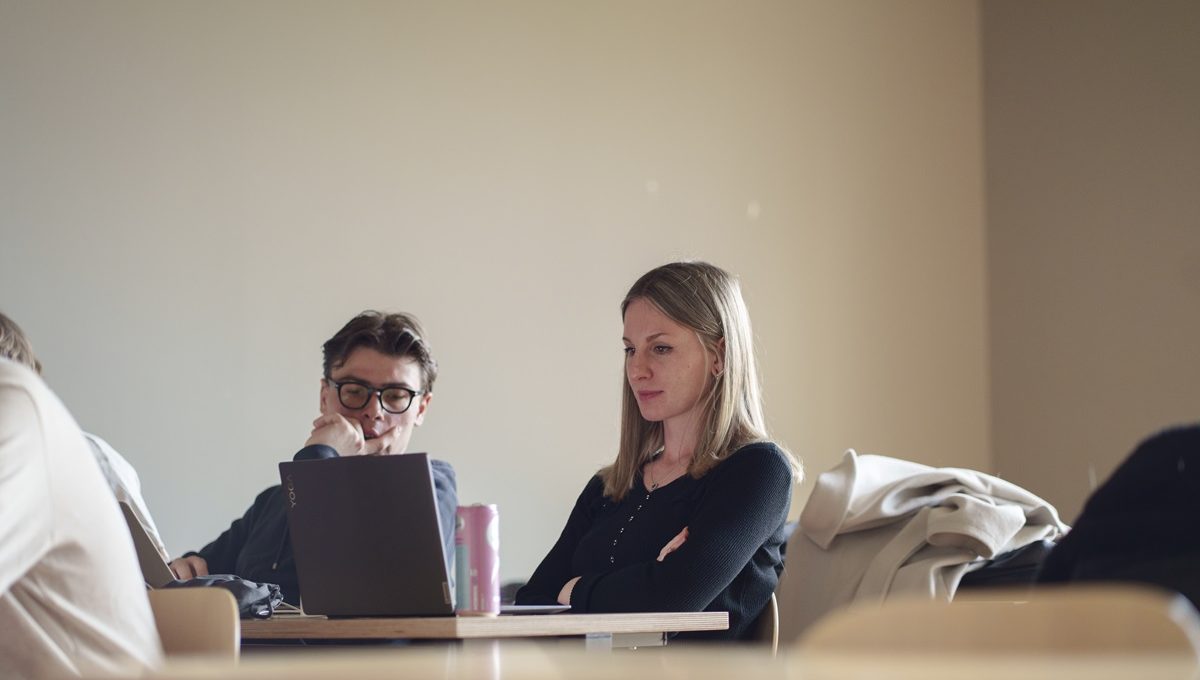


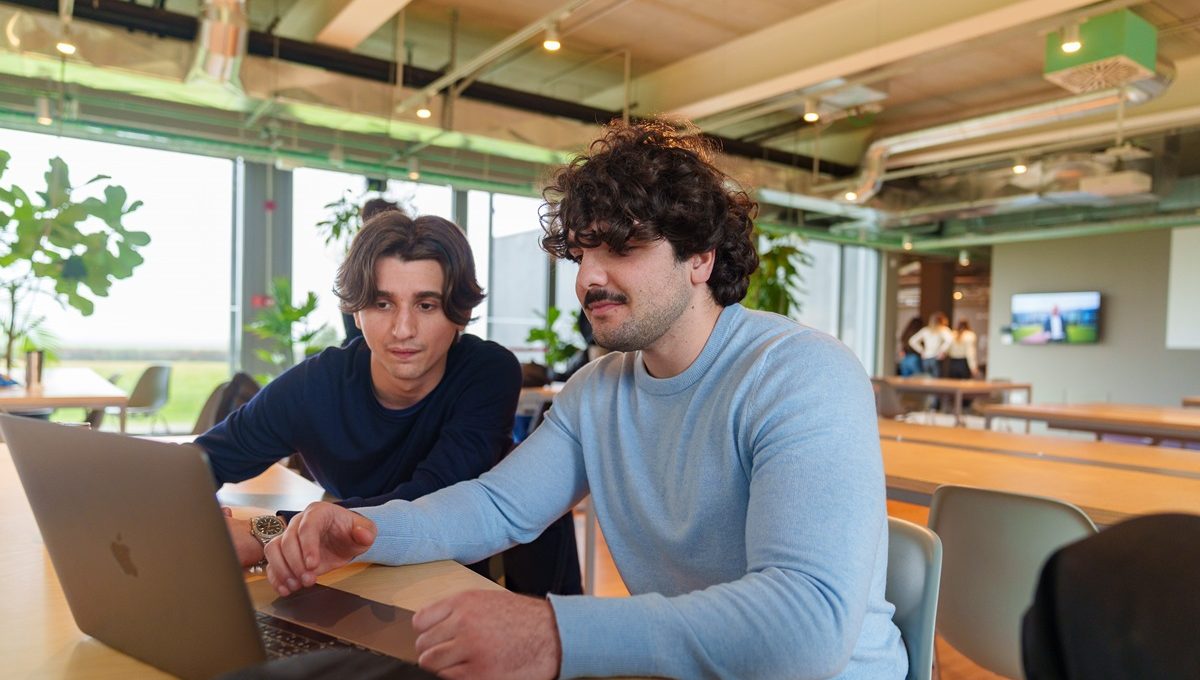


 Back
Back
